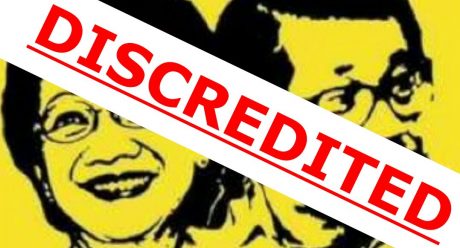
It’s time Filipinos pause, step back, take stock, and ask: What is really going on here? If one would attempt to answer that question using the commonframe of mind with which Filipinos have coocooned themselves within, the responses would be unsurprising, quite trite, and peppered with certain key words prevalent in mainstream discourse today:
“extrajudicial killing”
“immorality”
“corruption”
“fraud”
“injustice”
The above constitute, perhaps, at least 80 percent of fodder used in the content fired by mainstream media into the screens of its hapless Filipino audience. They attract eyeballs, ellicit chatter, and their advertisers and under-the-table patrons go off laughing all the way to the bank. That’s just the private sector media business at work. Just business.
The challenge, then, is to step further back and ask: What have Filipinosreally achieved over the last 30 years since democracy was “restored” following the 1986 people power “revolution”?
The default narrative overwhelmingly revolves around negation of negatives: expose corruption, recover ill-gotten wealth, correct injustice, reduce poverty. Imagine, for a minute a development scale ranging from -1 (most underdeveloped) to +1 (fully-developed). Then let’s suppose (by invoking a bigger stretch of our imagination), for argument’s sake, that all of the above purported achievements actually did materialise over those several decades. These achievements will only have served to raise the Philippines’ level of development from -1 to 0; i.e. corruption is eliminated, all stolen moneys have been clawed back, all is just and fair, and poverty had been scaled back.
The Philippines, in this thought experiement, having achieved those promises of the EDSA “people power” narrative will only have become just another society that meets the minimum requirements for common decency.
That kind of latching on to mediocre aspirations — to simply be a “decent” society — was not at all the winning attitude applied by countries like Singapore, South Korea, Taiwan, and, recently, Vietnam to their development efforts that catapulted them to the stratospheric star status Filipinos can only wistfully admire today. Columnist Peter Wallace articulates the relative mediocrity of the Philippines’ aspirations in this context in his latest Inquirer piece which cites the comparatively stellar achievements of once war-torn and still authoritarian Vietnam…
[…] Vietnam, like China, has been clear-minded about the direction it must take. Perhaps most important has been a focus on education. Vietnamese 15-year-olds do as well in math and sciences as their German peers. Vietnam spends more on schools than most countries at a similar level of development, and focuses on the basics: boosting enrollment and training teachers. The investment is pivotal to making the most of trade opportunities. Factories may be more automated, but the machines still need operators. Workers must be literate, numerate and able to handle complex instructions. Vietnam is producing the right skills. Thailand, Indonesia and Malaysia lag behind, despite being wealthier.“But Vietnam’s past quarter-century means that it has a decent chance of prevailing. It is at last starting on SOE reform. It is negotiating trade deals in Asia and with Europe. And it is drafting plans to increase its domestic share of manufacturing without scaring off foreigners. Vietnam is a model for countries trying to get a foot on the development ladder. With luck, it will also become a model for those trying to climb up it.”The message to the Philippine government out of this is that the slow, cautious reforms haven’t worked. Fast, dramatic change is what’s needed. President Duterte has promised it, but can he overcome the entrenched bureaucracy? Government underspending in the past few years, for instance, has been attributed to bureaucratic inefficiencies. It’s time to cut the red tape and ensure more efficient spending of government funds, especially those allotted for infrastructure projects.
The Vietnam profile, above, highlights a focus not just on uplifting itself from -1 to 0. Vietnam’s goal is to go past zero and go for 1. In stark contrast, the Philippines is stuck on a loser aspiration to merely get to zero. And, by all accounts, it seems to be failing at attaining even that mediocre goal.
We see it in the “issues” that even the most intelligent, most well-connected, most influential Filipinos busy themselves with today — the blowing out of proportion of human collateral damage in a national “war on drugs”, the “immorality” in the private life of a Philippine Senator, the supposed decline of “human rights” as a priority in Philippine governance, and all the shrill outpouring of “outrage” over some imagined fallout arising from the current administration choosing to do things a different way.
Now, finally, step back to as high a vantage point as you can and see now how all that fills the Philippine national “debate” pales when one regards the things prioritised by the truly emerging East Asian powers such as Vietnam. In that context Filipinos come across as quite pathetic. There is nothing in the topics that occupy the meagre brain space of the national discourse that contributes to or alines with an aspiration to be an excellent nation byabsolute standards. Nothing.
No comments:
Post a Comment